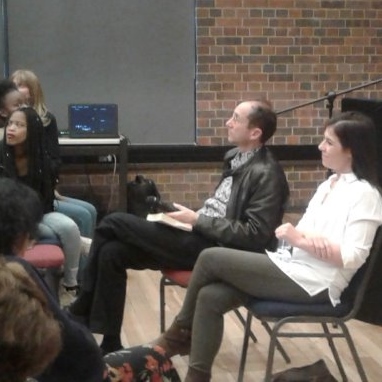Featured Item
From Nazi Germany to SA’s white laager
The process in which Jewish victims of Nazi persecution who fled to South Africa often came to occupy positions of privilege in the fledgling system of apartheid is an uncomfortable contradiction to contemplate.

MIRAH LANGER
“This is another side to the story of those that fled [Nazi Europe for South Africa],” said Stellenbosch University Professor Steven Robins during a recent talk at the Johannesburg Holocaust & Genocide Centre in Parktown, Johannesburg.
“It is this process of insinuating [themselves] into the social colonial order – this process of the whitening of Jews. It is about how Jews escape discrimination and difficult circumstances in Europe, and are assimilated into this colonial social order,” he said.
“I understand, but I also acknowledge that it’s a great tragedy that not more [Jewish refugees from Europe in World War II] got involved in openly resisting or subverting in whatever way possible the system that drew them in, and compromised their ethical position.”
Robins noted that, “There are many Jews who did resist apartheid. Look at the Communist party, and liberals… But by and large, notwithstanding that history, most South African Jews entered into this white fold, and didn’t rock the boat.”
Some of the earliest communities of Jews immigrating into South Africa were not granted positions within the construct of whiteness.
“There was a questioning of the whiteness, particularly of the poor and working class Eastern European Jews arriving in South Africa in the late 19th and early 20th century. They were ‘other’. They looked dishevelled. In some cases, their clothing, language, and bodily disposition made them seem un-European.”
In fact, at one point there was a debate in Parliament as to whether Yiddish was really a European language.
“The status of those Jews was questioned, but then with upward mobility and Anglicisation, Jews moved firmly into whiteness and the colonial and apartheid social order… Jewish people were invited into the white laager.”
Yet, the rise of very strong pro-Nazi Afrikaner Nationalists in the preamble to and actual World War II era brought new anxieties for Jewish people in South Africa.
“Psychoanalytically, I think it is really interesting what happened here, because in the 1930s and the 1940s, there was real fear amongst South African Jews about their future.”
After the war, when President DF Malan expressed sympathy and support for the Jews, “there was probably great relief”.
Yet the flipside of this invitation “into the fold” was the ethical price. “It’s the price of privilege.”
“That needs to be confronted – but one can understand it historically, how it happened and why it happened.”
After all, many European Jews making their way to South Africa were still reeling from the stripping away of national identities they had once seen as fixed.
For Jews, the more than 100 racial laws imposed on them during the war period marked a systematic, slow, and steady destruction of their most private sense of self – as well as public identification.
“It’s an extraordinary process where these Jews who aspired to be modern Germans, now… are beginning to doubt if they have been accepted as proper Germans…”
“This process of stripping down, slowly eroded their sense of belonging, citizenship, and dignity.”
As such, suggested Robins, on the one hand, the fear with which the refugees arrived in the country could be understood. Yet, on the other hand, the tacit complicity of many during the ensuing apartheid years remained “a tragedy”.
Robins’ comments were made during a wide-ranging discussion on how allegedly academic studies of race and eugenics become “travelling science”, and a source of fascination for masters of oppression, including the apartheid government and the Nazis.
Noting that at one stage, the United States was deeply steeped in eugenics, it was clear that this field was not a “uniquely German invention”.
Yet, during the Holocaust, “it was taken perhaps further than it had ever gone before”.
Jonni Kagan ( Canada )
August 13, 2018 at 4:02 am
‘I wonder if Professor Robins has read the book entitled " Community and Conscience" written by the esteemed Professor Gidi Shimoni wherein he discusses in great length the issues mentioned above.
In addition Shimoni asks why only the Jewish refugees are selected for opprobrium ?
‘